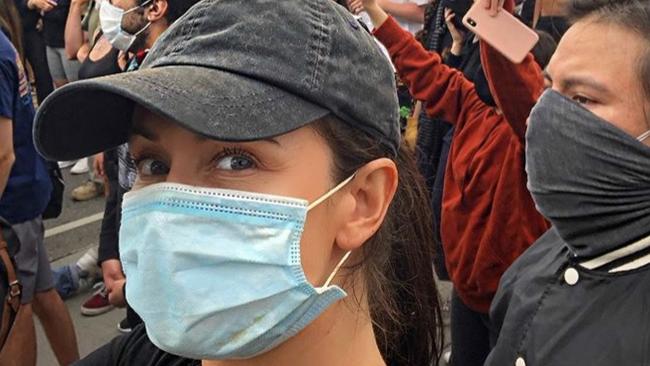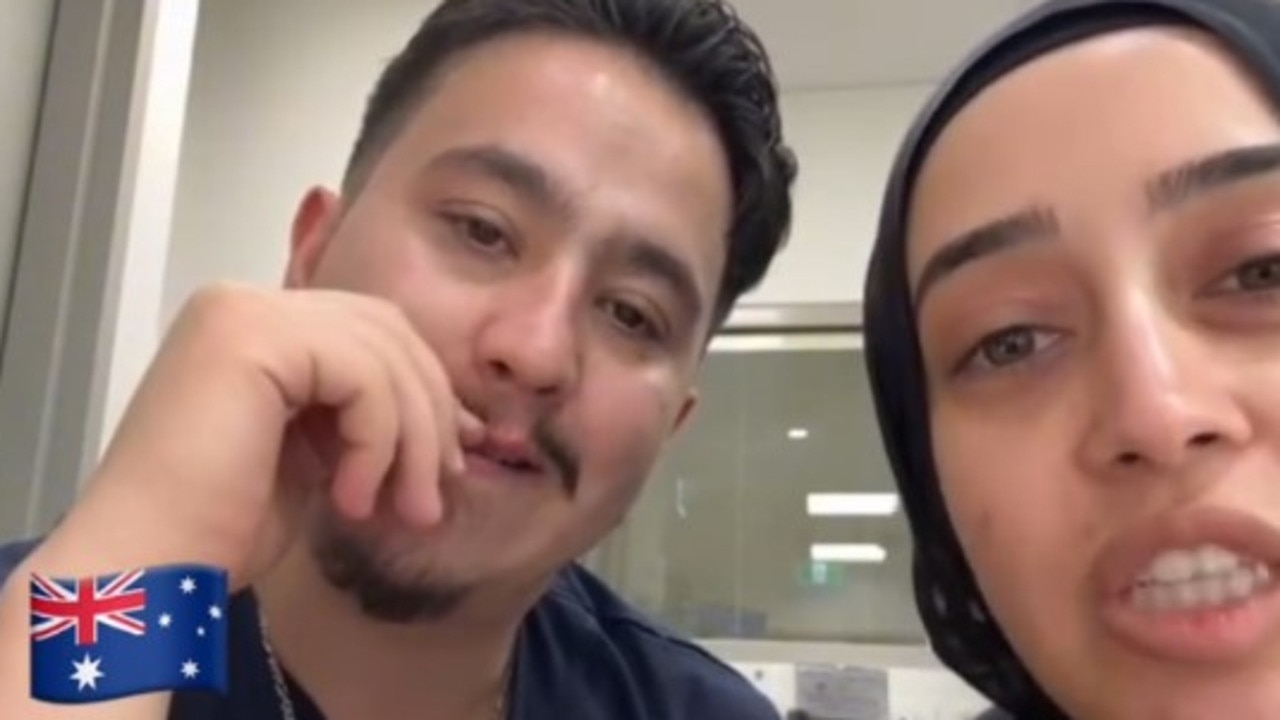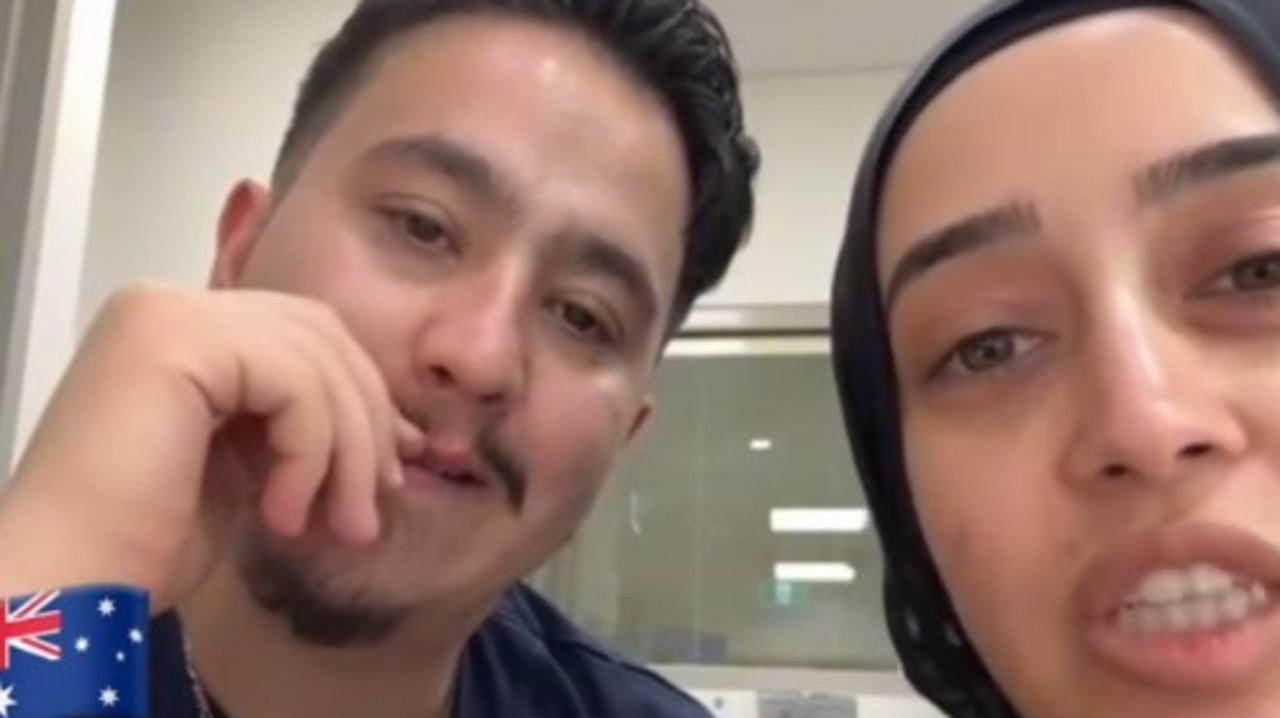US protests: Australian expats brave the bullets to show support
Kate Neilson was forced to shelter in the alcove of a Hollywood apartment block as the sound of rubber bullets pierced the air.

Australian expat Kate Neilson was forced to shelter in the dingy alcove of a West Hollywood apartment block as the sound of rubber bullets pierced the air behind her and a cloud of toxic teargas obscured her path to safety.
The Los Angeles-based actress, originally from Melbourne, said large parts of the city resembled a “war zone” when US police began “firing indiscriminately” into a crowd of protesters at an upmarket Hollywood shopping area.
Neilson said she watched “in horror” as a young female protester was shot in the face by a rubber bullet, the impact causing the woman’s forehead to split open.
“She was just bleeding profusely from her forehead, it was terrible,” Neilson told The Australian. “Police used unnecessary force on civilians who had a right to be there and protest peacefully.”
Neilson said she had never been to a protest before, but that all changed when she saw vision online of last week’s killing of unarmed black man George Floyd by Minneapolis police officers.
“It was absolutely sickening,” she said. “The injustice the black community faces really hit home when I saw that video.”
Mr Floyd died after Minneapolis police officer Derek Chauvin knelt on his neck for almost nine minutes during an arrest in which there was no sign of a struggle.
Mr Chauvin has since been charged with Mr Floyd’s murder.
While protests in the US have largely been peaceful, the unrest has also come with escalating tensions, including attacks on police officers and widespread looting.
Hundreds of Australian expats, however, say they will continue to take to the streets across the US to join protests that have now spread from coast to coast and erupted in at least 140 cities in a sprawling expression of anger and frustration.
Another expat actress, Brisbane-born New Yorker Jillian Geurts, was once a self-confessed armchair activist, but the 27-year-old said “something shifted” when she watched the now-infamous video of Mr Floyd’s violent death.
“I wasn’t political when I lived in Australia, and I regret that now,” she told The Australian.
“It’s sad it has taken a highly publicised tragedy like this (for me) to mobilise and take a stand.”
Geurts said the outpouring of rage over police brutality prompted her to “make a stand” instead of just “posting on Instagram”.
“Deciding to protest is a culmination of things, including knowing that I should have done better when I lived in Australia,” she said from New York.
Tasmanian Mathew Young marched with 100,000 other people in Boston as part of a Black Lives Matter protest and said the experience gave him pause for thought. “I never think twice when I go for a jog,” he said. “I’d never protested before, but I felt as if I should get involved because of the pain African-Americans are in.”
The 31-year-old said he was saddened that it took him moving to the US and Mr Floyd’s death for him to realise that many of the injustices faced by African-Americans mirror those faced by indigenous Australians.
It is a sentiment echoed by Tim Sullivan, a lawyer from Sydney now living in New York. “That has been at the back of my mind the entire time,” the 27-year-old told The Australian.
“That’s why it’s important to show up and be a barrier between black people and the police, because history shows they bear the brunt of police violence.”


